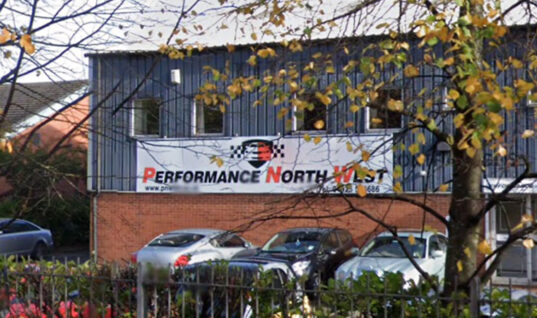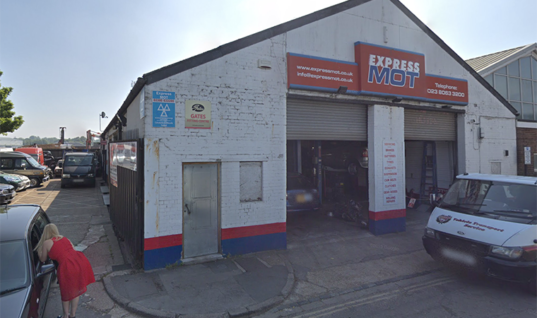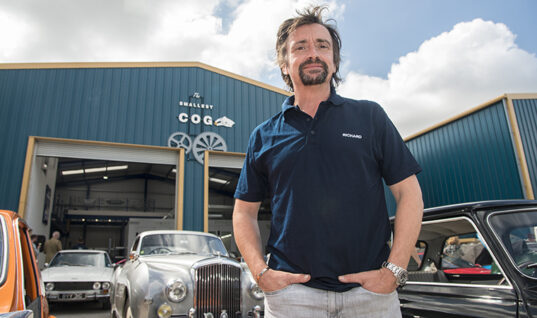A Lightweight, thoroughly reengineered E-type has been launched by Eagle.
Only 12 Lightweights were manufactured by Jaguar, introducing their most exotic E-Type for the 1963 season.
Noisy, brutal, exhilarating and exhausting, these brilliant race cars were intoxicating on the track and visceral on the road.
Six years earlier, Jaguar had re-equipped and retuned 16 of their legendary D-Type racers to create the XKSS: race car fast, yet with a level of comfort and refinement that allowed owners such as Steve McQueen to drive them every day.
Related: 3.8-litre Jaguar XK engine blocks originally produced from 1958 to 1968 back in production
Until now, there has been no Lightweight E-Type equivalent.
Founder of Eagle, Henry Pearman said: “An Eagle E-Type is always an ultimate development of the model, with each variation created for a different type of driver.
“Three years ago, a customer asked us to create Eagle’s vision of Jaguar’s ultimate E-Type, the Lightweight.
“The result of that project is the Eagle Lightweight GT, rigorously developed and proven and now ready for further builds.”

Eagle Lightweight GT
The challenge for Pearman’s team was even greater than that of creating its three other E-Type Special Editions, the Speedster, Low Drag GT and Spyder GT.
Henry added: “The factory Lightweight was a stripped-out racer.
“We wanted to retain that special feel of a 60s competition car from an incredible era in British motorsport, but with the comfort, refinement and reliability that would make it an exhilarating daily driver or long-distance GT.”
Building process
The process begins with a 100 per cent strip-down of an original Series 1 E-Type.
Every panel is replaced with lightweight aluminium of a modern grade more suited to road use than the thin, fragile material of the original Lightweights.
Specialist craftsmen invest more than 2,500 hours forming the sensual curves, then fitting them to a tolerance many times more demanding than those specified by Jaguar’s Competition Department.
The famous Lightweight profile is faithfully recreated, with subtle enhancements to aerodynamics including a deeper rear ramp angle, deeper sills (which also increase chassis stiffness and allow the driver to sit lower, improving headroom and lowering the centre of gravity) and increased screen rake front and rear with bespoke glass.
Wheel arch size has also been enlarged to accommodate 16” peg-drive magnesium alloy wheels, modelled on the original Dunlop racing wheels but wider, with a little more offset and one inch taller to allow more modern tyres.

4.7 litre engine
The heart of the car is Eagle’s 4.7 litre evolution of the famous Jaguar XK straight six that was fitted not just to E-Types, but also to the C and D-Types that, in the 1950s, won an astonishing five outright victories at Le Mans.
Factory Lightweights were specified with an aluminium block replacing the iron block of road cars, an upgrade replicated by Eagle.
A bespoke crankshaft, pistons and con rods improve responsiveness and durability, while a wide-angle head, as specified for factory Lightweights, accommodates larger valves and a higher lift camshaft for improved breathing.
Peak power of 380 bhp arrives at 5,750 rpm, but the pleasure of this unit is the vast wave of torque: 375 lb ft at 4,000 rpm and a wonderfully flat curve that makes the Eagle Lightweight GT feel effortlessly fast, before an urgent, howling dash for the redline.
From hand-forming to 3D printing
Ultra-lightweight magnesium alloys are specified for the gearbox case, bell housing, differential case, sump and rear hub carriers.
The gearbox has been uprated to a carefully re-engineered, all synchromesh five speed unit, taking care to provide a perfect period feel to the change with no compromise in the position of the lever.
There is no compromise allowed in the gearbox ratios either, as each one has been designed to ensure a seamless flow of torque that is ideally matched to the weight of the car and the characteristics of the engine.
Through extensive use of specialist lightweight materials including magnesium, Inconel and titanium, the Eagle Lightweight GT weighs just 1017 kg; not in stripped-out race configuration, but luxuriously specified and fully air conditioned for comfortable road use.
Comfortable road use also means resisting the temptation to give the Eagle Lightweight GT an exhaust note that shouts ‘race car’ or a track-focussed suspension calibration that too often makes such vehicles too harsh.
Eagle technical director, Paul Brace said: “Far more challenging is to combine taught, sportscar dynamics with the ride quality and refinement of a world-class Grand Tourer.”
Working together with the seats and tyres, Eagle’s lightweight suspension, carefully specified geometry, spring rates, bushings and bespoke Ohlins adjustable dampers, ensures long distances can be completed in refreshing comfort.
That attention to detail is continued throughout the Eagle Lightweight GT in the most comprehensive review and enhancement of an E-Type ever undertaken, accomplished with great sensitivity to the original feel and aesthetic.
The design of the floorpan, pedal mountings and the rear bulkhead have been tweaked to dramatically increase legroom in the E-Type’s notoriously cramped cabin while the seats are redesigned to improve safety, retention and long-term comfort.
The remarkable attention to detail has even increased finger room around the seat adjusters, using the latest 3D printing techniques to create bespoke control levers.

Most of the revisions, like the gorgeous peg-drive magnesium alloy wheels and aluminium three eared wheel spinner nuts, could be described as ultimate evolutions of the correct period technologies, but there are also carefully selected modern systems that have been discreetly integrated.
Braking is by four piston, servo assisted vented discs, a subtly integrated electrical distribution panel increases safety and reliability and the extreme cabin heat of the original is solved by modern thermal barrier materials and the careful integration of a discreet airconditioning system; designed in-house to eliminate the compromises that would be inevitable with a bought-in design.
Pearman says the Lightweight GT is a classic supercar that fuses the character and charm of the original Jaguar E-Type with the intoxicating thrills of a 1963 factory Lightweight, thoughtfully and comprehensively re-engineered to ensure the new owner enjoys every mile, every day.
For enthusiasts wanting to wrap the intense flavours of ‘60s motorsport in the sumptuous, hand crafted comforts of a luxury GT, “this,” he states with confidence, “is as good as an E-Type can be.”
Eagle E-Type range
The Lightweight GT joins Eagle’s three established E-Type ‘special editions’; the Speedster, Low Drag GT and Spyder GT. Just two ‘special edition’ E-Types will slip discreetly from their UK workshops each year, each one the product of more than 8,000 hours of skilled workmanship and 35 years of focussed, passionate, E-Type experience.
This brings the Eagle range to six, including the original steel-bodied Roadster and Coupe Eagle E-Types of which 48 have been completed since their introduction in 1994.
In addition to the rigorous re-engineering of the original vehicle, customers can choose from more than 100 options, developed to ensure that every Eagle E-Type delivers a combination of character, performance, comfort and technology that is precisely tailored to the demands of its new owner.
Share your comments below.
Garage Wire Podcast
Garage Wire · #2 Andy Savva ‘The Garage Inspector’ and GW columnist Aaron Phillips







